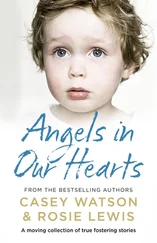Josephine wasn’t paying attention today either. She tended to drift off when Theresa got going — the book group fueled Theresa’s tendency to philosophize — but today Josephine was particularly distracted. On the radio this morning she’d heard a story about twenty-five million Hindus in Allahabad, India, bathing in holy waters at the confluence of the Ganges and the Yamuna. Naked mystics, bodies anointed with ceremonial ash, leading the way to the plunge into the river in the name of everlasting life in order to be free from the endless cycle of birth and death and rebirth. This seemed especially significant because tomorrow was her birthday, which reminded her of her mother. Tomorrow she would turn the age her mother was when she retreated to her bedroom and never came out again.
Even more immediately alarming had been the little specks like tiny spiders that danced their way across Josephine’s vision as she listened to the story about the plunging mystics. They were there when she first woke up, but she dismissed them as a sign that she desperately needed coffee. Now she closed her eyes and opened them again to see if the spiders would go away, but there they were. As the spiders twirled and dipped, she watched the two girls who lived across the street play with a car battery tossed out on their front lawn. The battery looked as if it had narrowly escaped a fire, its edges singed. Josephine blinked again, but the spiders still hovered.
A man pushed a pile of mattresses stacked on a rolling cart down the street. On top of the pile of mattresses was another man sleeping under a blanket. At the end of the street were mysterious piles of wood, like something about to be rebuilt. The neighborhood was filled with things that needed to be repaired but never would be.
“And this is the city named one of the ten best small cities if you don’t want to live in New York?” Theresa asked, gesturing to the sleeping man rolling down the street.
“I think I’m going blind,” Josephine said, so softly that Theresa didn’t hear her.
Theresa blew on her coffee to cool it, and even though it was a beautiful day and their chairs were turned to catch the sun the way they’d set them up every morning since the weather turned warm, this struck Josephine as an especially useless gesture. She wanted to shake Theresa and tell her that.
“Are you even listening to me?” Theresa asked.
Josephine started to apologize, but there were the spiders. They retreated a little, flickering at the edges of her vision.
“I’m not feeling very well,” she said, louder this time.
“It’s practically your birthday,” Theresa said, blowing on her coffee again. “You’ve got birthday nerves.”
“Just let it sit. The air will cool it.” Josephine took the coffee out of Theresa’s hands and put it on the ground.
“That’s dangerous, you know,” Theresa called out to the girls playing with the battery. The girls looked up blankly, as if that was the point, then banged on the battery with a rock. Josephine couldn’t agree more.
“Shouldn’t those kids be in school?” Theresa looked at the wristwatch her ex-husband, Richmond, had given to her, as if knowing the time would provide an answer to her question.
The man pushing the mattresses lifted the lids of trash containers placed in the street for pickup. Josephine had seen this man before, without the mattresses, looking in the containers just after the garbage man had emptied them. Today the man’s disappointment was a sound, a keening that sliced through Josephine like a sharp wind. Is this how it began with her mother?
“But really, don’t you think that could be my life soon — joy flickering on the edge of misery? Maybe tonight is about offering me a little joy for once,” Theresa said. She picked up her coffee and started to blow a ripple across the surface again.
“Maybe. Just be careful.” Josephine said this not so much because she thought Theresa might follow her advice when she saw her ex-husband as because she felt obliged to say it, particularly since she had run into Richmond at the diner around the corner yesterday. It was the first time they’d ever met. She’d been reading alone at a table when he walked in. “Aren’t you Theresa’s neighbor?” he asked. “The therapist, right?” He joined her for coffee, and though Josephine told herself she was doing it for Theresa’s sake (she had even suggested counseling when he said that he and Theresa were having “problems, nothing major”—he was only telling her this because he knew she was a “professional”), she still recalled Richmond’s musky aftershave smell and the way he touched her arm when he got up to leave, causing her stomach to drop with desire. What was happening to her? She was going on ten years in this line of work, that must be it. Eli, her terrifically flawless boyfriend, was right, though she would never admit it to him; she needed a break. Was she telling herself to be careful more than she was telling Theresa? She felt bad for letting her impatience intrude on this friendship, and for having coffee with Richmond and not telling Theresa, so she squeezed Theresa’s shoulder.
“Don’t be such a worrier,” Theresa said, shrugging her off, alarmed by this uncharacteristic display of affection. “I’m not your client.”
But that’s how their friendship had started three months ago, the night Theresa first moved in. Theresa banging on her door in the middle of the night; Josephine letting her in—“We could see about getting you a bed at a shelter” and then “Why don’t you sleep here on the couch.” Richmond had threatened her with a knife. “He never uses it; it’s a prop. It’s a bread knife. It’s serrated, for god’s sake,” Theresa said.
It was never clear to Josephine how much of what Theresa told her was for effect. She was always taking things back, or adjusting them after she succeeded in shocking Josephine initially. Like the time Theresa said she suspected Richmond had secretly killed his own dog so that Theresa would think his dog died naturally and feel sorry for him. The next day she retold the story so that Richmond had put the dog out of his misery because he was old and sick. Whether Theresa was telling the truth or simply trying to restore order didn’t seem to make a difference. Either way it was about taking the world by the throat. Theresa pushed her voice and her body against life in an effort to leave an imprint. Her relationship with Richmond revolved around the drama of their bodies as much as their minds — sex and the potential for violence intertwined. “Sex was best after a fight,” Theresa told Josephine yesterday over coffee. “At least we put our hostility to good use.”
That first night, Theresa fell asleep sitting up on Josephine’s couch, her tea balanced perfectly in her lap. Josephine watched her and was suddenly willing to throw all her training as a social worker out the window for the possibility of having her own friend — someone apart from colleagues or Eli’s friends. She and Eli had moved to this town a year ago because Eli had gotten a position at the university teaching psychology. Josephine had difficulty making friends, and here was someone who lived right next door, and — she hated to admit this part — someone whose fucked-up life might distract her from the feeling that had started as a seed a year ago and grown and grown, headed for today, the feeling that there was a genetic tidal wave coming her way, that there was no escaping from the undertowlike sorrow that had waited all her life to drag her out to sea. But that was ridiculous, her own hyperbolic nature. It was as ridiculous as reading into the spiders dancing across her eyes, believing they were a wake-up call. And still, they danced. Get ready .
Читать дальше












